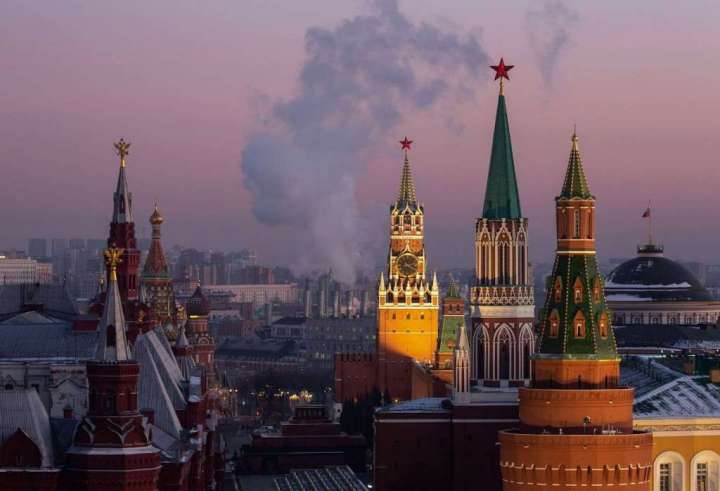Reading Russia’s latest sanctions list, permanently banning travel to the country by 963 people, saddened me — and not just because my name is on it. It’s a catalogue of hurt from a nation that seems ready to blame everybody but its leaders for its current troubles.
Why I’m sad to be on Russia’s all-purpose payback list

Donald Trump can still visit Moscow, but scores of Republican members of Congress can’t. The list of excluded GOP senators ranges from moderates such as Roy Blunt of Missouri and Mitt Romney of Utah to hard-right stalwarts Ron Johnson of Wisconsin and Tom Cotton of Arkansas. The GOP doesn’t fare much better in the House. Moderates Liz Cheney of Wyoming and Mike Gallagher of Wisconsin can’t tour the Kremlin anymore, but neither can Jim Jordan of Ohio or Marjorie Taylor Greene of Georgia.
As for Democrats, forget about it. The sanctions list includes the Democratic House leadership, including Speaker Nancy Pelosi of California, Majority Leader Steny H. Hoyer of Maryland and Democratic Whip James E. Clyburn of South Carolina. The Congressional Progressive Caucus can save its rubles, too. The members of “the Squad” are all banned. So are Pramila Jayapal of Washington state and Ro Khanna of California. It’s the same on the Senate side. Majority Leader Charles E. Schumer of New York and Whip Richard J. Durbin of Illinois: Nyet, nyet.
Follow David Ignatius‘s opinions
FollowNational security advisers, who form a chain of foreign policy expertise from administration to administration, are mostly untouchables, too. Jake Sullivan, the current adviser, is banned (along with his wife, Margaret Goodlander, for good measure). But so are John Bolton and H.R. McMaster from the Trump administration, along with Stephen Hadley from the George W. Bush years. Henry Kissinger can still travel to Moscow, and maybe he should. The Kremlin needs to talk to someone.
The sanctions document seems to be an all-purpose payback list, with some pretty peculiar grievances. I searched for information about people who were identified only as “U.S. citizens.” A half-dozen of them had been accused in court of mistreating Russian orphans they adopted. They included a 1997 case in Colorado, a 2003 case in Pennsylvania, a 2008 case in Maryland, a 2010 case in Ohio and a 2012 case in Tennessee. Some of the details in these stories were ugly, but still, these are very old wounds.
The list has other anomalies. People who played a role in the Helsinki Commission on Human Rights are cited 18 times. So are the members of organizations that sought to expose Russian disinformation, including actor Morgan Freeman and director Rob Reiner. Representatives of think tanks that tried to untangle Russian foreign policy machinations, such as the Atlantic Council, are named frequently. A D.C. Council member who named a block near the Russian Embassy in Washington after dissident Boris Nemtsov is also banned.
My own crime, in addition to being a “journalist,” is that I am supposedly an “expert at the [Woodrow] Wilson Center.” Sorry, comrades, but you have that last part wrong. I am, however, a trustee of the German Marshall Fund (as I have regularly informed readers). I guess even sanctions compilers need editors and fact-checkers.
Speaking of which, among the banned are some who wouldn’t be able to go in any event, for the simple reason that they are dead. They include the late senators John McCain of Arizona, Harry M. Reid of Nevada and Orrin G. Hatch of Utah.
Some Americans might regard permanent exclusion from Russia as a treat, but I’m not one of them. I’ve visited the country a half-dozen times, starting in the early 1980s, and enjoyed every visit. I’ve talked for over four decades with Russian ambassadors, foreign ministers, Middle East specialists and other officials. Quite apart from this journalistic work, I love Russian literature and music. The vodka isn’t bad, either.
So it’s a genuine personal regret for me that I apparently won’t be visiting Russia again anytime soon. But beyond that, I worry about how, if Russia won’t talk to anyone, the country will find its way back to normal life after its tragic assault on Ukraine is halted.
Adults sometimes behave like children, and that’s especially true of adult politicians. When they make big mistakes, as Russian President Vladimir Putin did in his unprovoked invasion of Ukraine, they want someone else to blame. They huff and puff. They imagine there’s a virtue in their isolation.
Everyone knows what it’s like to nurse a grudge; sensible people know how to get over one. They find a way out, so that they stop inflicting pain on others — and escape the prison they are creating for themselves.






